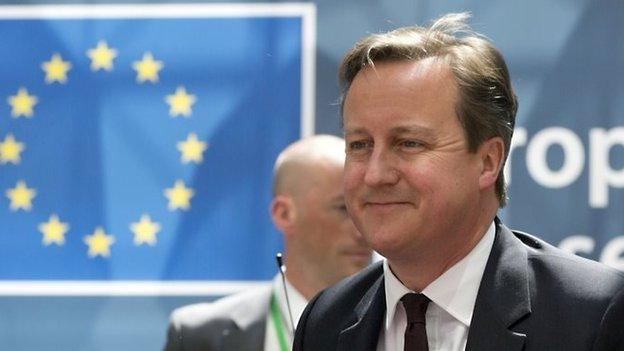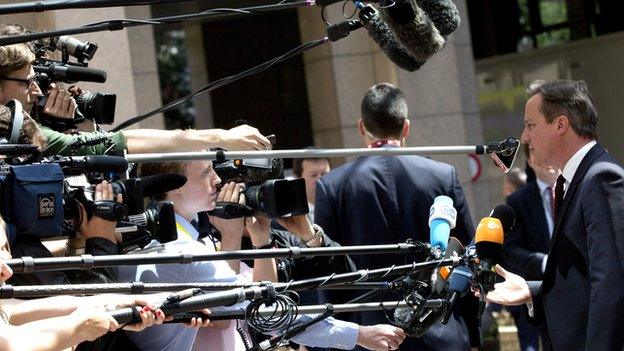Europe: Cameron accepts treaty delay
- Published

The BBC understands that the prime minister has accepted that it may not be possible to change the EU's treaties - the laws on which it is based - before the UK votes in a referendum on whether to stay in or leave the EU.
In recent meetings with fellow European Union leaders David Cameron has argued instead for what officials call an "irreversible lock" and "legally binding" guarantees that at some future date EU law will be changed to accommodate Britain's renegotiation.
As recently as January Mr Cameron insisted that he would be demanding "proper, full-on treaty change", external.
Euro sceptics and those who want to leave the EU altogether have always been suspicious that agreements between political leaders can be later undermined in the courts.
They believe that legal or treaty changes are necessary to deliver the Prime Minister's negotiating objectives - in particular to free Britain from the EU's commitment to build an "ever closer union" of nation states and to ensure that benefits such as tax credits be withheld from migrants who have been in the country for less than four years.
David Cameron's critics may fear that the formula he is now using is a watering down of that commitment and will demand to know who would interpret any legally binding agreement reached between the Uk and the rest of the EU.
Downing Street insists, however, that it is simply a reflection of the fact that any treaty change will require a time consuming ratification process in 28 different countries involving parliamentary votes as well as referendums in France, Ireland and Denmark.
They point out that when Ireland had a referendum in 2009 on the Lisbon Treaty all other EU countries had not yet ratified the proposed changes in EU law.
- Published25 June 2015
